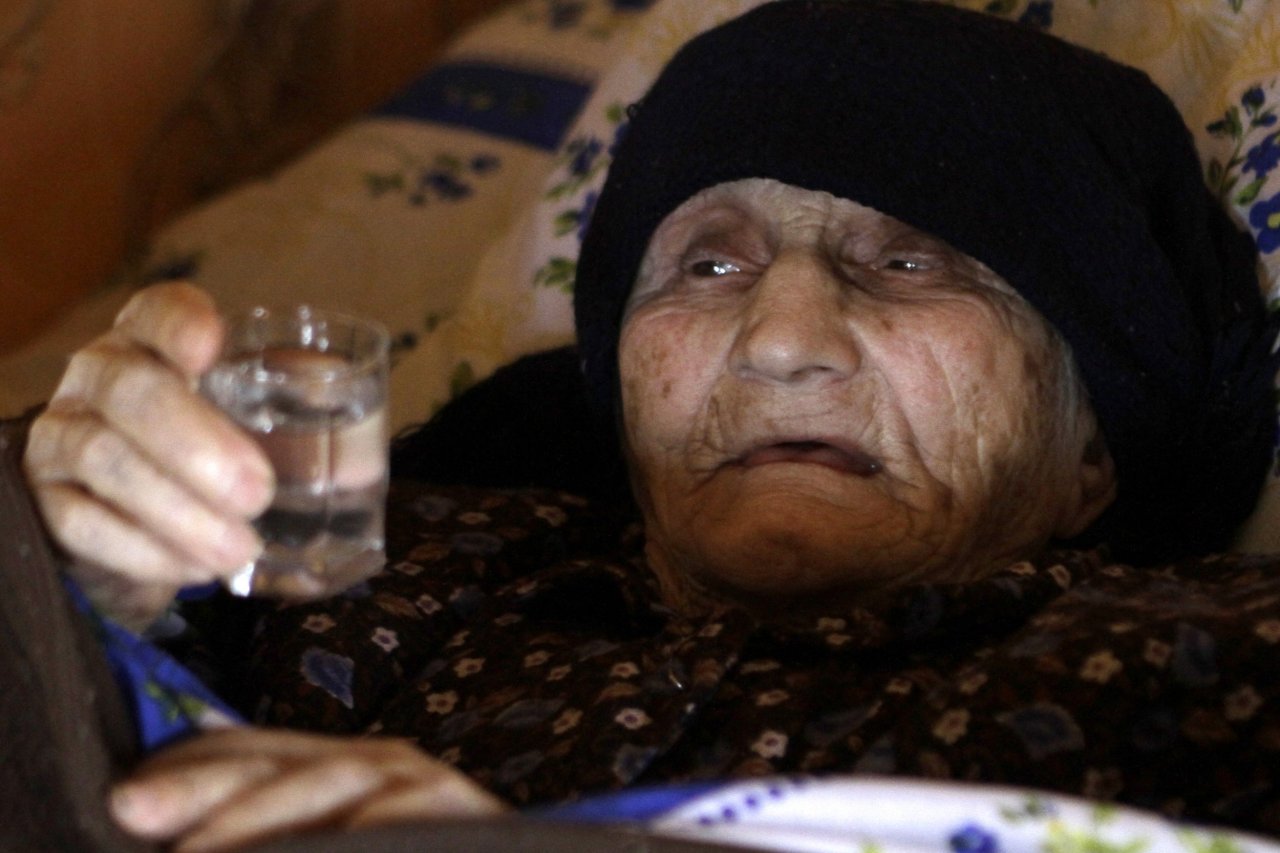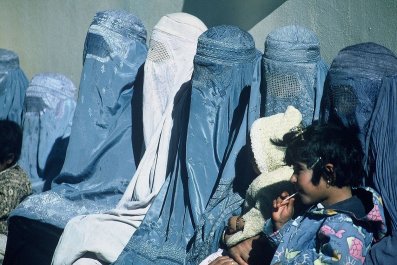Wherever we go in the world, one story remains the same: a woman can expect to live longer than a man.
In relatively prosperous Western Europe, the average male lifespan is between three (UK) and six years (Austria, Spain, Greece) shorter than women's. The gap gets even wider in Eastern Europe, where World Health Organisation figures show that Romanian and Polish men die seven to eight years before their female counterparts, while in Belarus, Russia and Lithuania, that figure stretches to 12 years (men go at 63, women at 75).
Even in countries with the highest male longevity rates (Canada, Cyprus, Israel and Japan, where men can expect to live to 80), women still come out on top, living to an average of 82 (84 in Japan) The question is: why? And the answer is that no one has the definitive answer. "It's just the way things are," says a spokesman for the UK Department of Health.
There are, of course, plenty of theories. Joblessness, is one hypothesis. According to a report by the Men's Health Forum (MHF) and the Work Foundation, unemployed men looking for work are 20% more likely to die than men who have a job. "We knew ill people were more likely to be unemployed," says MHF chief executive Martin Tod. "Now our report shows that being unemployed makes men sick."
On the other side of the coin, working too hard can also shorten men's lives. Demographic researcher Bertrand Desjardins, of the University of Montreal, backs the theory of French demographer Jacques Vallin. "Women seek beauty, men seek strength and power," he says. "A woman's body must remain strong and healthy as long as possible, whereas a man's body must be submitted to risks and challenges from an early age." Others believe that men have an inbuilt genetic inferiority to women. "The female immune system is known to produce a more vigorous response to biological insult than the male immune system," says David H Phillips, professor of environmental carcinogenesis at King's College London.
Another possibility, put forward by a team of researchers in the publication Nature Genetics, is that men are rendered vulnerable by diminution of the chromosome concerned with sperm production. "Men who had lost the Y chromosome in a large proportion of their blood cells had a lower survival, irrespective of cause of death," concluded the report, produced at Uppsala University.
Heart disease also claims men earlier than it does women. "For every 1,000 men who have cardiovascular problems between the age of 55 and 65, there are only 25 women in the same situation," says Amy Thompson, senior cardiac nurse with the British Heart Foundation. What's more, not only do men start off with built-in defects, but women receive help along the way. "With women, oestrogen facilitates the elimination of bad cholesterol," says Desjardins. "And this offers some protection against heart disease."
Money and socioeconomic status also play a part in the imbalance as well as level of medical care and general lifestyle.
"The evidence is clear," says professor Brian Ferguson, director for Knowledge and Intelligence at Public Health England (PHE). "A person's likelihood of dying early varies widely between areas, due to differences in risk factors, such as lack of exercise, being overweight, plus excessive smoking and alcohol consumption. And these factors are closely linked to economic deprivation and other aspects of the way we live, that may be beyond a person's control.
It is beyond question, says UK health research group The King's Fund, that a healthy bank balance contributes to a healthy body. "Men and women from the richest social class can, on average, expect to live more than seven years longer than those in the poorest social class," it says in its paper Life Expectancy. Indeed, according to figures from PHE, there are even some places in which men are bucking the trend and living longer than women. No surprise, though, that most of these are in well-to-do postcodes: three of the top six areas are in London's Belgravia, Kensington and Chelsea.
In less prosperous parts of the UK, life isn't quite as sunny, or as long. In Manchester, most women don't make it to 80, while in Blackpool, the average age at which men die is 73.8. However, "life expectancy continues to increase in England", says PHE's Ferguson. "From 2000 to 2012, it rose by 3.2 years for males and 2.4 years for females."
In some countries, the improvements are even more spectacular. Compared to 1990, life expectancy in Bhutan has risen from 53 to 68, and in the Maldives from 60 to 76 – which means that we have come a long way from how things were at the beginning of the 20th century.
"In 1901, life expectancy in the UK was 45 years for men and 49 years for women," the King's Fund report reminds us. "By 2012, this had increased to 79.2 years for men and 83.3 years for women."
And this upward trend is going to continue. In Britain, figures from the Office of National Statistics indicate that by 2032, men will live to 83.3 years old, and women to a ripe old 86.8. On top of which, more and more of us are going to live until we're 100.
It's predicted that, by the year 2037, there will be 77,000 women and 34,000 men in the UK who have reached their centenary. Hard though it is to believe, one-third of all children born in 2013 in the UK will one day find themselves blowing out 100 candles on their birthday cake – although there won't be quite as many men at those parties as women.
There are, of course, countries where the difference between male and female lifespans is very small. That, however, is not as welcome a revelation as it might sound. For whereas people in the developed world can look forward with reasonable confidence to reaching their 80s, there are 30 African countries in which the average age of death is under 60. In Sierra Leone, the gap in years between men and women dying is as little as 12 months.
That's the good news. The bad news is that the average age at which a woman dies in that country is 46.



















